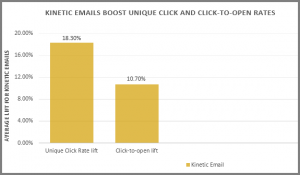![10 Revealing Statistics About Compensation And Benefits You Should Know [Infographic] - compensation and benefits](https://www.onlinesalesguidetip.com/wp-content/uploads/2017/03/10-Revealing-Statistics-About-Compensation-And-Benefits-You-Should-Know.png)
Compensation and benefits is a pretty sensitive topic that most managers like to avoid.
So we put together an infographic with some interesting statistics that show you what employees are truly thinking when it comes to compensation.
Enjoy!
80% of employees would prefer new or additional benefits over a pay increase
Remember, money can’t buy happiness.
What employees really want is freedom and autonomy. I’ve spoken to many people who have told me that they would take a $ 5,000-$ 10,000 salary cut for the ability to work from home a few days a week.
As a manager, there are a ton of things you can do to make your employees happy that don’t cost any money.
I’ve said this many times before, but at the end of the day, employees just want respect. You can give them that respect by giving them autonomy, freedom, and power (all great benefits).
90% of millennials would prefer benefits over a pay raise
A lot of possibilities here of why this number is so high, but this statistic is very interesting.
Millennials are all about work-life balance.
They understand that it’s better to enjoy life and make a decent living. They witnessed their parents work unbelievably hard only to have it all taken away from them when the market crashed.
I think millennials have a much better appreciation for happiness, and they (rightfully) have high expectations of how a workplace should work.
As a manager, both of these statistics show that you should clearly be focusing on benefits.
Pro tip: Ask employees what they would want as benefits. Even if you can’t give them everything they want, it might help you spark some ideas for what you can do.
60% of women (and 48% of men) rate work-life balance and well-being as “very important” in a new job
My dream is that this number would be higher.
I don’t think many people understand the importance of work-life balance and the kind of effects that overworking has on you.
This statistic gives us an interesting insight, many people are looking for work-life balance in a new job, so when you’re recruiting, you can highlight elements of work-life balance to attract candidates.
57% of U.S. job candidates report benefits and perks are among their top considerations before accepting a job.
This is great for advertising your employer brand, and especially good insight for recruiters.
Now, you can know what you should be highlighting in job descriptions, on careers pages, and in interviews.
If your benefits packages aren’t up to par with other companies, you’re missing out on a huge opportunity to attract top talent.
Again, good benefits are cheap (free), you just need to take the time and energy to put these things into place. Easier said than done, but it comes down to trust and respect.
84% of employees with high benefit satisfaction report high job satisfaction
There’s clearly something about employee benefits leading to more job satisfaction.
I think a clear focus for managers should be about testing and frequently implementing new benefits with the help of your employees.
Not only is that guaranteed to make them more satisfied, but including them in the process will empower them and give them that sense of ownership, helping increase their loyalty to the company.
70% of employees believe salary transparency is good for employee satisfaction
I’ve always personally been a fan of salary transparency.
My thinking is, if you have nothing to hide, why not make it public? It can open the door for some interesting conversations.
Having said that, I understand that not every organization or even every employee is comfortable with releasing that information.
The key takeaway here isn’t that salaries need to be transparent, but that transparency in general is great for satisfaction.
Men earn 24.1% higher base pay than women on average
Transparent salaries would likely help solve this problem, but this is something that needs to be fixed.
I’m not entirely sure why this still happens, and this is part of the larger fight to bring more equality into the workplace.
It’s too bad that women don’t get the same level of respect as men in the workplace, because the research shows that one of the best ways to have a more successful team is to have more women on the team.
This is something for all leaders to keep an eye on, it’s unfair to pay women less for the same work.
67% of U.S. employees said they were not likely to apply for a job at a company where men and women were paid unequally
Continuing the conversation, this is even more reason to pay people fairly.
People won’t apply to work there, and even worse, people will leave.
No one wants to work in an environment that they don’t respect, and many companies out there are starting to become much smarter and more strategic with their brand.
If you’re not following suit, you are in for a rude awakening when your top talent leaves and you can’t seem to find anyone good to replace them.
Only 65% were satisfied with their compensation
I wouldn’t get too worried about this statistic.
Yes, many people are unsatisfied with their compensation, and yes, people will always want more, but there are other ways to make them happy.
It’s important to pay your people well, but if you genuinely can’t afford to do so, you can make up for it with the benefits you offer.
This might genuinely be an issue of underpaying employees, which can be fixed relatively easily. I just wouldn’t put too much emphasis on paying people more.
49% of employed adults in the U.S. feel they must switch companies in order to obtain any meaningful change in compensation
What’s important to note here is that this could be a perception problem.
It’s possible that people are unhappy and believe that the only way to see any meaningful change is to switch companies.
This is definitely scary, because employee turnover is incredibly costly and annoying, but I think this can be fixed by calming those fears from employees. Again, most employees want better benefits and don’t care as much about more money.
If you can improve their overall compensation (salary + benefits), they’ll be much more likely to stay and not think about leaving.
Do You Agree With These Compensation Statistics?
I’d be curious to hear your comments below!
Digital & Social Articles on Business 2 Community(135)
Report Post
![10 Revealing Statistics About Compensation And Benefits You Should Know [Infographic]](https://www.onlinesalesguidetip.com/wp-content/uploads/2017/03/10-Revealing-Statistics-About-Compensation-And-Benefits-You-Should-Know-Infographic.png)





